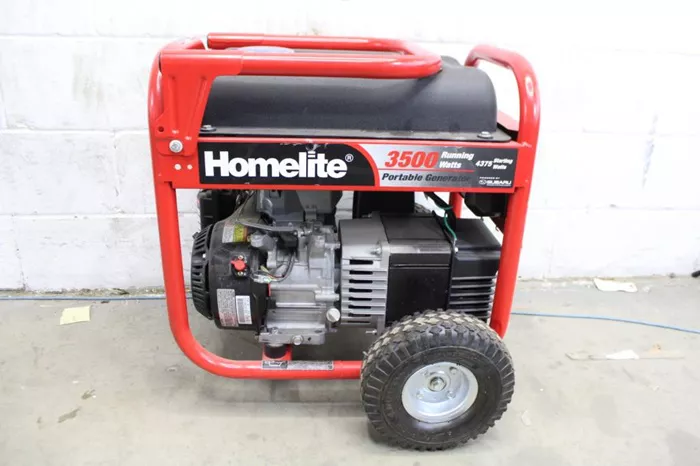Home generators are essential backup power sources during outages, ensuring your lights stay on and appliances keep running. But what fuels these machines? Understanding the different fuel types helps you choose the best generator for your needs. This guide explores the most common fuel options, their pros and cons, and how they affect performance.
How Home Generators Work
Before diving into fuel types, it’s important to understand how generators function. A home generator converts mechanical energy into electrical energy using an engine and an alternator. The engine burns fuel to create motion, while the alternator turns this motion into electricity.
Generators can be portable or standby (stationary). Portable models are smaller and manually operated, while standby generators automatically kick in during a power outage. The fuel type impacts runtime, efficiency, and maintenance requirements.
Common Fuel Types for Home Generators
Home generators typically run on one of these fuels:
- Gasoline
- Diesel
- Propane (LPG)
- Natural Gas
- Solar (Battery-Powered)
Each has unique advantages and limitations. Let’s examine them in detail.
Gasoline-Powered Generators
Gasoline is the most common fuel for portable generators. It’s widely available and easy to store, making it a popular choice.
Pros
- Readily available at gas stations.
- Lower upfront cost compared to diesel or propane models.
- Good for short-term outages (less than 24 hours).
Cons
- Short shelf life (degrades in 3-6 months without stabilizers).
- Highly flammable, requiring careful storage.
- Less fuel-efficient than diesel or propane.
Best For
- Emergency backup during short power outages.
- Camping or outdoor activities.
Diesel-Powered Generators
Diesel generators are known for their durability and efficiency. They’re commonly used in industrial settings but are also available for homes.
Pros
- More fuel-efficient than gasoline.
- Longer lifespan with proper maintenance.
- Safer to store (less flammable than gasoline).
Cons
- Higher upfront cost.
- Noisier operation than other fuel types.
- Diesel fuel gels in extreme cold, requiring additives.
Best For
- Homes in rural areas with frequent long outages.
- Heavy-duty power needs (running large appliances).
Propane (LPG) Generators
Propane is stored in tanks and is a clean-burning fuel. Many standby generators use propane because it doesn’t degrade over time.
Pros
- Long shelf life (doesn’t degrade like gasoline).
- Cleaner burning, producing fewer emissions.
- Works in cold temperatures (unlike diesel).
Cons
- Requires large storage tanks.
- Lower energy output compared to gasoline or diesel.
- Can be expensive if propane prices rise.
Best For
- Homes with existing propane tanks.
- Eco-conscious users wanting lower emissions.
Natural Gas Generators
Natural gas generators connect directly to a home’s gas line, providing a continuous fuel supply. They’re often used as standby generators.
Pros
- Unlimited runtime (as long as gas supply lasts).
- Low emissions, environmentally friendly.
- No refueling needed (unlike gasoline or propane).
Cons
- Requires a gas line connection (not available everywhere).
- Higher installation costs.
- Lower power output compared to diesel.
Best For
- Urban homes with natural gas supply.
- Long-term power backup solutions.
Solar-Powered Generators
Solar generators use batteries charged by solar panels. They’re silent and emission-free but have limited power output.
Pros
- No fuel costs (runs on sunlight).
- Silent operation.
- Zero emissions, eco-friendly.
Cons
- Limited power output (not ideal for high-wattage appliances).
- Weather-dependent (requires sunlight).
- High initial cost for solar panels and batteries.
Best For
- Eco-friendly homes.
- Supplemental power for small devices.
Which Fuel Type Is Best for Your Home?
Choosing the right generator depends on:
Power needs : High-wattage appliances require diesel or natural gas.
Fuel availability : Rural areas may prefer propane or diesel.
Budget : Gasoline is cheaper upfront, but propane/natural gas has lower long-term costs.
Environmental concerns : Solar and propane are the cleanest options.
Maintenance Tips for Different Generator Types
Proper maintenance ensures your generator runs smoothly when needed.
Gasoline: Use fuel stabilizers and drain old gas if unused for months.
Diesel: Replace filters regularly and use anti-gel additives in winter.
Propane/Natural Gas:Check gas lines for leaks annually.
Solar: Keep solar panels clean and check battery health.
Conclusion
Home generators run on various fuels, each with unique benefits. Gasoline is affordable but short-lived, diesel is robust but noisy, propane is clean but requires storage, natural gas is convenient but needs a gas line, and solar is eco-friendly but limited in power.
Assess your needs, fuel availability, and budget to pick the best option. A well-chosen generator keeps your home powered during emergencies, providing peace of mind. Would you like recommendations based on your location and power requirements? Let us know in the comments!

